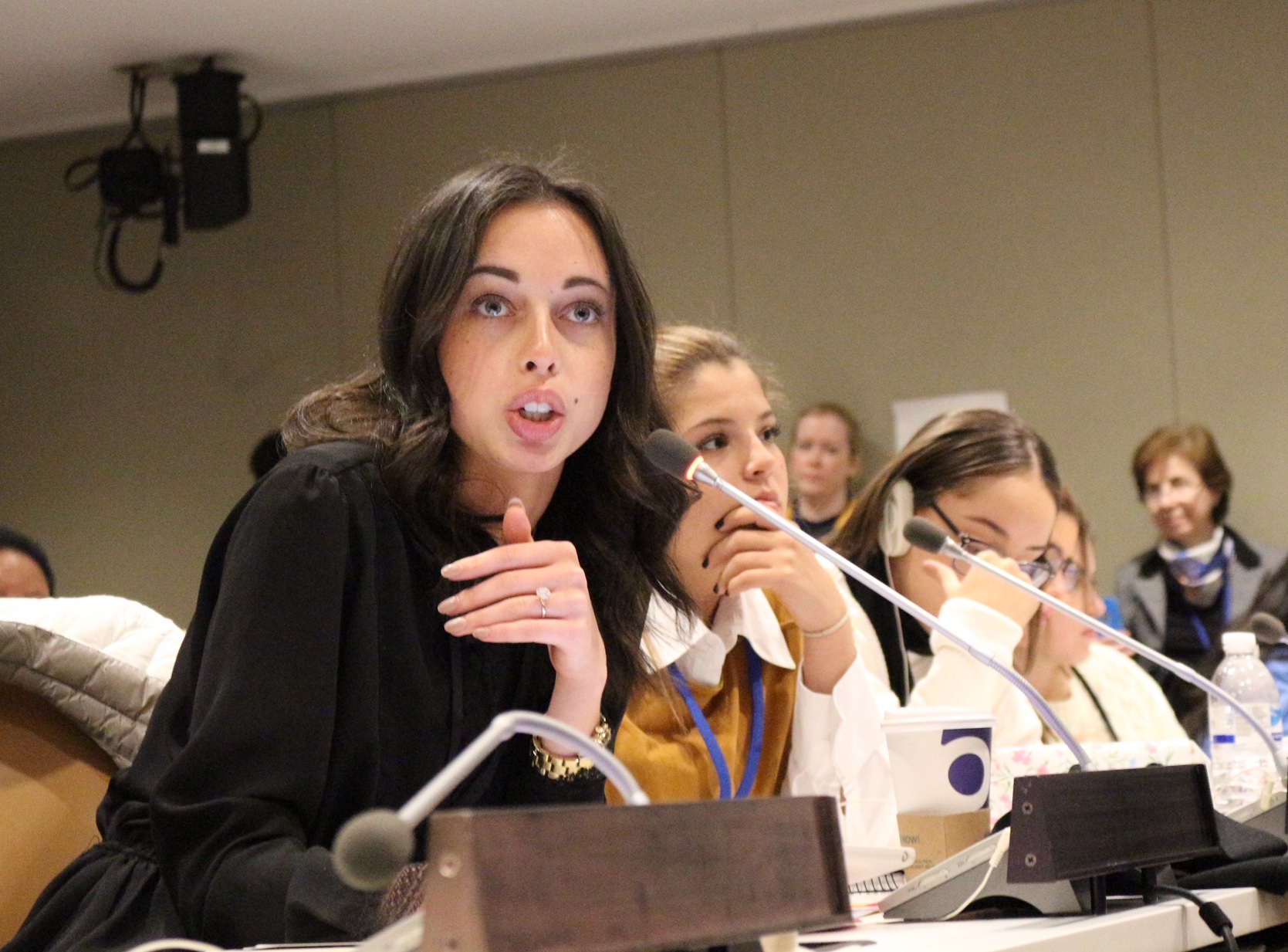United Families International was privileged to have university students accompany us to the Commission on the Status of Women. Breaunna Stone shares what she learned while at the United Nations.
As we walked into the side event, it was visible we didn’t quite fit in. We looked a little bit different than everyone else, and in our thoughts, it was clear that our perspective on the topic at hand was not going to be popular.
The event was called “Challenging Harmful Social Norms and Stereotypes to Empower Girls and Young Women.” For anyone without a background in family systems and theories, the topic would seem positive and that it might be a good way to empower girls and women in our society.
What most people do not know is that the language used in these seemingly empowering and innovative events, can be very negative and have the power to start a conversation that leads to soft law that is detrimental to the family, and the empowerment of women, and girls.
There were about six of us students and UFI staff spread throughout the room. As the panelists began to discuss the prompted questions, we immediately started messaging each other some of our thoughts, feelings, and questions. Some of the things the panelists said were,
“Legal norms need to go a step beyond what the social consensus is…. We need to reform masculinities and femininities… and create a more gender equal society… Deconstruct value systems and dismantle patriarchy…”
In other words, it doesn’t matter what the social consensus is, they want to create policy on a macro level that goes beyond what society wants and believes. Reforming and deconstructing values, masculinities, femininities, and patriarchy, is a way to “even out the playing field” and make it so there are “no differences between men and women in society and family” other than their sex.
As the event progressed, we narrowed our thoughts down to two thought provoking and informative questions that we hoped for the opportunity to ask. The two questions were:
#1 I think we can all agree that men and women are different. Biology is proof of that. Both men and women bring different things to the table, and their roles are different in the family and societies. Are you trying to make it so men and women play the same parts in the family and in society? You say everything needs to be equal, but are you trying to say that both men and women need to have the same roles to be equal?
#2 While we work on changing the negative social norms, how are we going to make sure that motherhood is still viewed as a valuable contribution? Earning potential is good, but what about women who want to be mothers?
The event was beginning to wind down, and the facilitator announced that that they would only allow for one question to be answered. My heart started to pound. This was our chance to change the conversation and dialogue of the event. All of our hands shot up in the air with hope that one of us would be called on. At random, her eyes fell on me and I was called on to ask a question.
With determination, and articulation that I did not know was inside of me, my shaking hands turned on my microphone. I asked the second question that referred to motherhood.
Their response was what I expected. There were no direct responses to protecting or the importance of motherhood. That was skillfully tiptoed around. But there were responses to the idea that most women feel oppressed by society to stay home and raise their children. They spun their response in the way that what their program was doing was empowering women to make a choice to go into the work force or to stay at home and raise their children.
I do believe and agree with some of the points that were made. Women should feel like they can make their own choice of whether or not they want to be a stay at home mother or work outside of the home. What I do not agree with is the methods with which they are “promoting” this kind of choice. Their methods include deconstructing values, reforming what is masculine and what is feminine, and creating policy that doesn’t align with what is wanted by the people.
Not recognizing and eliminating the masculinities and femininities men and women each have and which are vital in the family and society, makes it appear that men and women are the same and can play the same roles. This is simply not true. Mothers cannot be fathers, and fathers cannot be mothers.
The roles of motherhood and fatherhood are a valuable and vital contribution to society that cannot be overlooked. I do not want any kind of policy to be put in place where my values are at risk of deconstruction of motherhood or anything else for that matter. That is why it is important to advocate and stand for the family.
American author Edward Everett Hale said, “I am only one, but I am one. I cannot do everything but I can do something. And I will not let what I cannot do interfere with what I can do.”
I am only one person, one wife, one mother, one advocate, and I cannot do everything. But I can do something, and I can speak up. Although our question did not ultimately change the minds of any of the panelists, everyone else in that event heard a different perspective on the topic, and their thought processes were turned towards the family and motherhood.
Making a difference in the world is most likely achieved when one person influences another. Be the one that influences another. Be the one.

